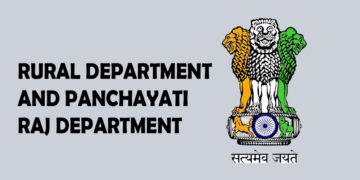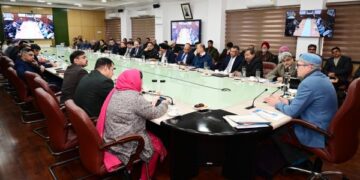Srinagar: While disposing of a Public Interest litigation (PIL) seeking action against spurious and substandard drugs’ manufacturers and dealers, the High Court of J&K and Ladakh has asked the authorities to proceed against culprits “if relevant information is provided to them”.
A division bench comprising Chief Justice Arun Palli and Justice Rajnesh Oswal closed the PIL by one Naveed Riaz. They held that in view of the stand taken by the official respondents and the submissions made by the counsels for the contesting parties, no further directions are required to be issued.
“However, the petitioner is left free to bring to the notice of concerned respondent authorities any sale of fake/spurious drug/medicine in the Union Territory of Jammu and Kashmir. If any such information is provided to respondents they shall proceed in accordance with law,” ordered the bench.
The petitioner, claiming himself to be a practicing lawyer, had filed the petition in public interest, complaining about the sale of misbranded, spurious and substandard drugs in the Union Territory (UT) of Jammu and Kashmir.
He prayed a command on the official respondents to immediately ban the sale and distribution of drugs manufactured and distributed by unregistered companies in the UT.
As a sequel, he requested for initiation of legal proceedings against the erring companies and individuals after seizing the spurious, fake and misbranded drugs and medicines.
The PIL also sought from the authorities a detailed report with respect to the operation of unregistered companies and manufacturing units, besides sale of misbranded and unregistered medicines in the UT.
The PIL prayed for an immediate ban on sale and distribution of drugs manufactured and distributed by unregistered companies in the Union Territory of Jammu and Kashmir.
The petition suggested the government devise a strategy to prevent supply and availability of spurious and fake drugs and medicines in the Union Territory. It sought that large-scale sampling tests for the medicines available in the market and sampling in accordance with the provisions of Drugs and Cosmetics Act, be carried out on a regular basis.
It also asked for a direction commanding upon the respondents to devise a strategy to prevent the entry and sale of spurious and fake medicines in the J&K and create awareness about the labelling and other mechanisms. It sought preventive measures by using all the available options to spread awareness about the medicines and drugs including through seminars, television, public debates, newspapers, internet, radio.
The petition required from the respondents a strategy for controlling the over-the-counter sale of antibiotics and other drugs, and make it imperative to sell drugs only on a medical prescription.
The official respondents stated that the Drugs and Cosmetics Act, 1940, and the rules framed thereunder lay down a comprehensive mechanism with all checks and balances to regulate the sale and purchase of medicines.
“The manufacturer of drugs is under statutory obligation to test each lot of the raw material used for manufacturing drugs and each batch of the final product,” read their affidavit.
It also said that the Drug Control Department lifts samples of drugs randomly as well as on the basis of complaint from the vendors. “UT of J&K has two testing labs, one each at Jammu and Srinagar. Intelligence cum legal cell has been created vide order No. 638-HME of 2018 dated 26.11.2018 to facilitate busting of spurious drug rackets and the prompt prosecution of perpetrators of crime under Drugs and Cosmetics Act,” stated the affidavit.
It said there is a proper complaint redressal mechanism and all the complaints received are attended to the entire satisfaction of end-users.
“The Union Territory of Jammu and Kashmir has to broadly rely on manufactures’ in-house testing and the regulatory mechanism available within the respective States from where manufactured drugs enter the Union Territory of Jammu and Kashmir,” read the affidavit.
It claimed the department has carried out extensive market checks and found that the drugs in circulation are manufactured by companies having “established credentials”.








